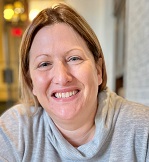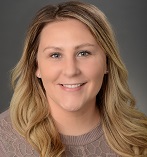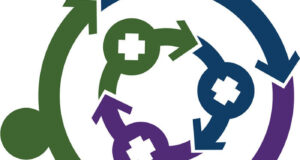
An Innovative Solution to Helping Isolated Patients Avoid Guardianship
BY DEB HOUSE LMSW, CCM, AND ASHLEY ZAPP, LCSW
As case managers, we spend considerable time working within various points of the healthcare delivery system with patients who are considered “unfriended” or “isolated.” These patients are by far one of the most vulnerable patient populations we serve. The “unfriended” or “isolated” population all have one thing in common: They have no one. These are the patients we have all worked with, the patients who due to a variety of circumstances and reasons, have no one to speak for them if they ever become unable, no one to appoint their healthcare agent or carry out their advanced care directives. These patients have no family or close friends to call upon when or if a healthcare crisis ensues. As a healthcare organization, we saw this vulnerable population presenting in our acute care hospitals with strokes, advancing dementia, traumatic brain injuries and other ailments that would ultimately affect the patient’s capacity, cognition, ability to direct their own care and make their care wishes known. In an acute care setting, as many of us have experienced in our careers, this would ultimately necessitate guardianship to transfer the patient to the appropriate level of care. Pursuing guardianship typically results in approximately 60 excess uncovered acute inpatient hospital days per individual and tens of thousands of dollars in legal fees. Additionally, the longer patients remain in the acute care setting, the more susceptible they are to hospital-acquired infections. An article in the Journal of Hospital Medicine, showed in their cohort study that “one in six patients suffered hospital acquired complications after their day of medical readiness” (Riccota, Parris, Parris, Sontag, Mukamal, 2018). Ultimately, this also results in someone unfamiliar with the patient making decisions surrounding their medical care. Unfortunately, the decisions ultimately made may be vastly different from what the patient would have wanted. As case managers, we were aware of who many of these at-risk, in-need patients were; we just weren’t sure how to help them before a health crisis ensued.
Additionally, many of the patients we saw present to our healthcare system who were “unfriended” or “isolated” suffered from severe and persistent mental illness, (SPMI). Many of these patients were estranged from their families, had exhausted any formal or informal supports they may have had and have been left with healthcare professionals advocating for them who could not serve as their healthcare agents. Almost all these patients were referred for case management at every entry point in our healthcare continuum to help solve the issue of “isolation.”
Given the need, cost associated with it, net excess hospital days and overall cost to our healthcare system, we scoured the literature to find a solution we could learn from. However, the literature was of little help; we could find nothing of benefit. The American Geriatrics Society did release a position statement as early as 1996, updated in 2017, that the unfriended older adult is a population that should have special attention and that proactive efforts to prevent older adults from becoming unfriended should be reviewed. A clinical recommendation in the article cited, “clinicians should consider non-traditional surrogate decision makers for unfriended older adults” (Farrell, Widera, Rosenberf, Rubin, Naik, Braun, Torke, Vitale, Shega, 2017). Given this, we launched an innovative solution in an effort to provide the best possible care to our patients. From this need, the “Buddy Program” was launched. This innovative program services the unfriended population who desire to have a voice in the form of a healthcare proxy. This is a simple, no-cost program that provides a proactive approach to close the gap on the needs for this at-risk population.
The program’s concept was simple: Match a volunteer with a patient in need who could potentially serve as that individual’s healthcare proxy. To see if we had interest from the patient perspective, we identified a cohort of patients within our Program of all Inclusive Care for the Elderly (PACE), each of whom suffered from SPMI and was found to be “unfriended” or “isolated.” Every PACE participant who qualified voiced a desire to be a part of the program. We then identified a pool of volunteers who were not employed by the organization and advertised this new program as an innovative volunteer opportunity to serve those with this need. We received an overwhelming amount of interest in the program and held an informational session. We explained in detail what a healthcare proxy is, how it differs from a power of attorney, the role of a healthcare proxy, the targeted population and rationale for the need. Every volunteer who participated in the informational session decided to move onto the next step, a formal educational session on advanced care planning and directives by our head of ethics.
Once the educational session was completed, the volunteers had a chance to tell the in-need “unfriended” patients about themselves in the form of a short biography explaining a little about themselves and why they wished to be considered for the program. The patients in need had a chance to do the same with their own biography that the social services department at PACE helped them draft. Once complete, a committee of case managers, social workers and ethics matched in-need patients with a potential volunteer based on the information in their biographies. Weekly meetings would then be set up between the volunteers and in-need patients to ensure they had a chance to meet, learn about each other and then eventually, if both parties agreed, the patients advanced care wishes. Patients and volunteers met weekly for a minimum of six weeks with staff assisting to ensure a positive connection. After the initial six-week period, a patient and volunteer may determine if they are ready to assign a formal healthcare proxy. Once the proxy is assigned, the volunteer and patient meet monthly to ensure both parties are still in agreement and review any changes to the patient’s wishes at that time. At any point, a patient or healthcare proxy may decide they no longer wish to be a part of the program.
As of today, there have been dozens of healthcare proxies signed, and the program has grown from its origins that began within the walls of our PACE program to serve our entire healthcare continuum. There is a formal referral process, a committee that meets to review each applicant and volunteer. There have been numerous success stories since the inception of the program. Three weeks after our first healthcare proxy was signed, the patient was diagnosed with kidney cancer. Upon meeting her and asking her how the program affected her life, she stated that she wasn’t alone anymore, even with cancer. The second gentleman who assigned a healthcare proxy through this program had a history of significant cardiac issues and had suffered a previous cardiac arrest. He stated he never wanted to be resuscitated but he hadn’t completed advanced directives and was alone. He now has a healthcare proxy and formal advanced care directive in place. Healthcare is ever-changing; it is innovative programs such as the Buddy Program that will allow us to serve our most vulnerable patient cohorts while also allowing our healthcare systems to remain sustainable.
References
Ricotta, D., Parris, J., Parris, R., Sontag, D., Mukamal, K. (2018). The Burden of Guardianship: A Matched Cohort Study. Journal of Hospital Medicine, 13(9), 595-601.
Farrell, T., Widera, E., Rosenberg, L., Rubin, C., Naik, A., Braun, U., Torke, A., Li, I., Vitale, C., Shega, J., (2017). AGS Position Statement: Making Medical Treatment Decisions for Unbefriended Older Adults. Journal of the American Geriatrics Society, 65(1), 1-5.

Deb House, LMSW, CCM, is a licensed social worker who serves in an executive position overseeing care coordination and social work services for two large health systems in upstate New York. Ms. House oversees complex care efforts for both systems, is part of the Health Association of New York’s (HANYS) complex care team and sits on multiple not for profit boards. Ms. House also teaches both graduate and undergraduate students planning careers in the human service field.
Ashley Zapp LCSW, is a lice nsed clinical social worker who has spent her career in the acute care hospital setting focusing on progression of care. Ms. Zapp currently serves as the manager of an integrated care coordinated system across a large healthcare system in upstate New York. Additionally, Ms. Zapp is responsible for post-acute network development and maintenance for the healthcare systems Accountable Care Organization (ACO). Ms. Zapp serves on her health systems ethics and complex care committees.
nsed clinical social worker who has spent her career in the acute care hospital setting focusing on progression of care. Ms. Zapp currently serves as the manager of an integrated care coordinated system across a large healthcare system in upstate New York. Additionally, Ms. Zapp is responsible for post-acute network development and maintenance for the healthcare systems Accountable Care Organization (ACO). Ms. Zapp serves on her health systems ethics and complex care committees.
IMAGE CREDIT: ISTOCK.COM/DESIGNER491




